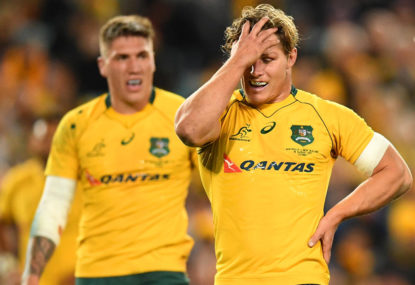Five surprises, five disappointments and five things to figure out as Super Rugby 2024 reaches the end game
After this weekend there will be five more rounds of Super Rugby Pacific and then the finals. So, let's reflect on the five biggest…

Rugby is at a crossroads for its survival in Australia. For any progress to be made, we as fans and stakeholders need to agree to a common objective – a reason as to why we play the game.
Currently, rugby in Australia is suffering an identity crisis.
In light of Andrew Forrest’s proposal of an Indo-Pacific competition and the #Saverugbyunion statement released on The Roar, the objective of this article is to define what we want as fans.
A classical principal-agent dilemma exists – we have ownership in one place and management in another. That is the central problem today because the managers don’t necessarily operate on behalf of the owners.
We see these dilemmas present in all aspects of society; look at the years post-GFC and the rise of populism. A massive asset bubble has been created due to historical low interest rates, investors saw cash flow to other capital investments (shares and property) which were at historic lows. Subsequently, a class of people now are disgruntled to the state and have felt as though they have missed out on the opportunity to create wealth themselves.
We live in a world of protest votes and populist ideology – it’s uncanny that you can draw a lot of parallels with the timeline of Super Rugby’s inception to the present day and the gap between club rugby in Australia.
Whether you’re a passionate clubman, a kid who looks up to a professional, or a sports fan who wants to see the Wallabies finally reach their potential, look up!
Bill Pulver and Cameron Clyne are moving on, Super Rugby has a new broadcasting arrangement in 2020, and domestically there is a lot of sabre rattling on how the game should be administered.
1. Why we play
Let’s all agree on one thing – why we play and watch the game. Like all sport, it’s fun and is an enabler for bringing people together.
Locally, the three reasons to get involved are to see the Wallabies win trophies, enjoy a competitive game at Super Rugby, and share tribalism and loyalty at club level.
For all the noise and conjecture on where the game stands, the decision-making process is an emotional one. Our brains are geared to the negative as a survival mechanism. I hear all this talk about competition structures and product of the TV rights – it couldn’t be further from the truth. Product is the last thing you talk about in sales – you sell vision and values first, that’s your ‘why’.
For example, why do more people watch the Cowboys in Townsville than the Waratahs can gather in Sydney? You would think by sheer population size, stadia, transport and location that the Tahs would pull a bigger crowd every week. Well, why don’t they?
People in North Queensland buy into the Cowboys because they can relate to them, because it genuinely means something to them. Some people drive up to eight hours from their farms to watch their team. You have something bigger where the likes of Johnathan Thurston is championing a new stadium to be built after accepting the Clive Churchill Medal and winning the 2015 grand final.
Rugby union isn’t too different; for example why did North Sydney Oval sell out this year and what about the Rats winning the Shute Shield – it was inspiring.
Irrespective of being Super Rugby or Indo-Pacific Cup, people will be into a genuine reason, this is something that the administrators haven’t nailed since the game went professional.
Tomrrow, Part 2: The next leader.